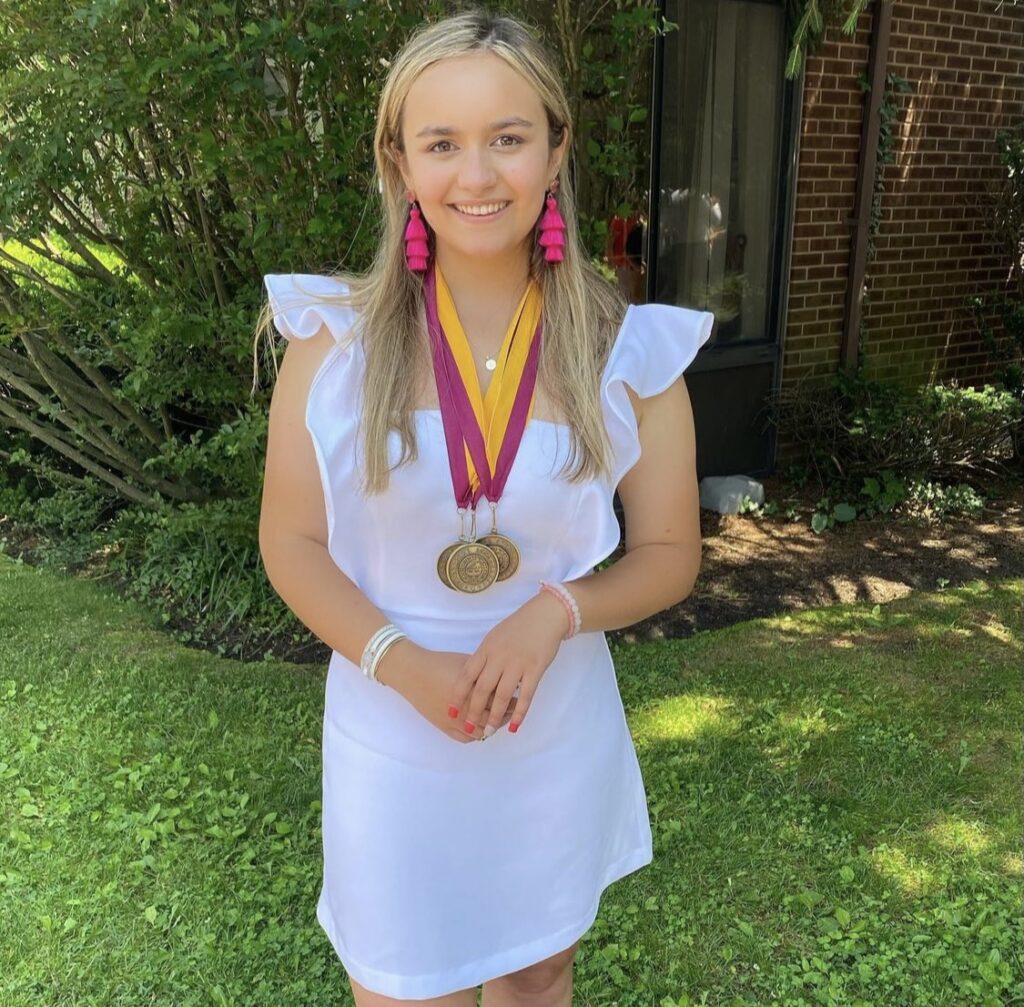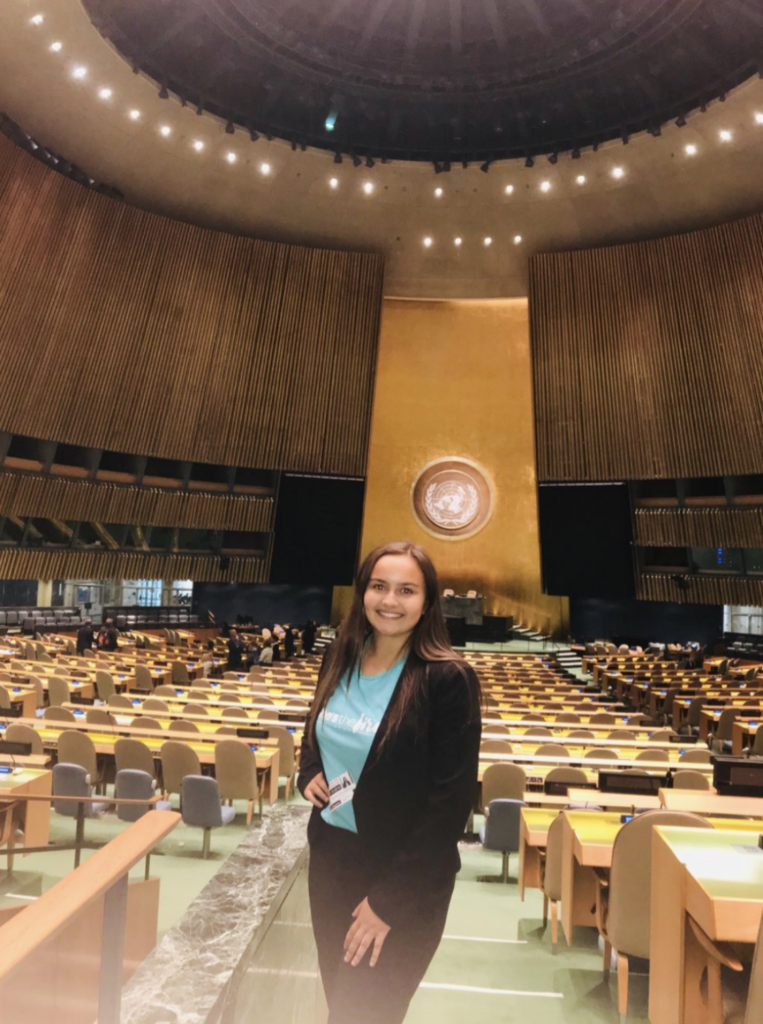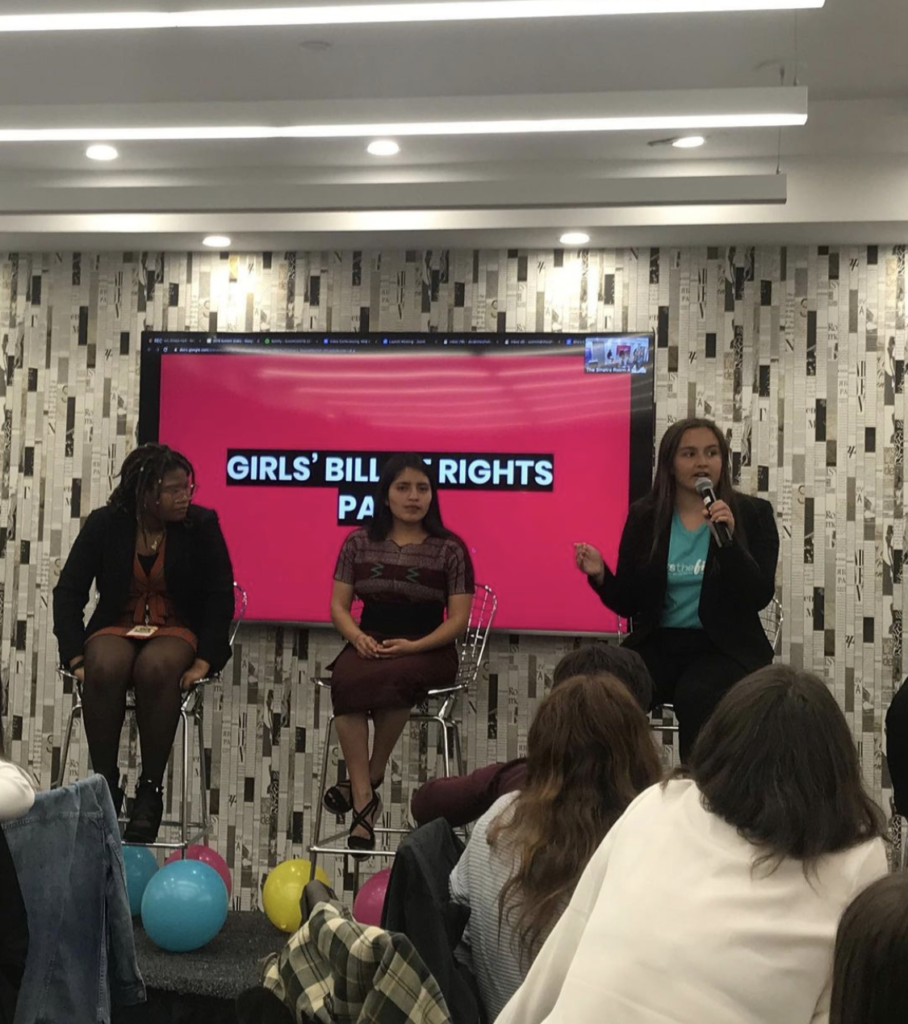Interview by Anika Mukker

Meet Olivia Lombardo, an 18 year old activist from Staten Island, New York. Passionate about gun violence prevention, women’s education and empowerment, and civic engagement. Also a rising freshman at Yale University, she plans to eventually pursue a law degree and continue effecting change by reconciling her passions for government and non profit work.
How has your background influenced your advocacy and the cause you’re passionate about?
Where we are in Staten Island is very politically and ethnically different from Manhattan, New York City, and just from the nation in general. So, a lot of my activism started locally, even just within my school. I went to a small private school with 36 students in my graduating class.
The small class size influenced me in so many ways. Disagreement is so common, especially in our political climate. This is why in my activism I try to “heal the divide,” but I also dislike saying that because it isn’t so much a divide as inability for communication between people who disagree. In my school, people who you disagreed with, you saw every day. There was never an opportunity for me to ignore them and feel safe in my small little bubble because everyone I interacted with had a differing opinion to some extent. A community like that, that was so small, with teachers who disagreed with you as well as your peers, allowed me to form stronger bonds and have, what I consider, more intellectual conversations about race, sexism, etc.
That’s not to say those issues didn’t exist in my school — they did structurally and in individual attitudes of students. But, at the same time, we were able to coexist while recognizing that you don’t have to be friends with people who don’t respect who you are, who don’t respect your identity.
My two grandmothers also influenced me. One of them was the first to attend college in her high school and her family, and my other grandmother immigrated here and never got to go to college. So, having that background of strong women in my life who never had anyone behind to push them to be educated and who were the first in their families to do this just made me value education at an early age. That’s why I got involved in She’s the First and am passionate about women’s education, especially globally.
You are involved in such a wide range of work on varying international, national, and local scales. One one hand, there’s often that misconception that you need to start these far reaching global movements from the get go. On the other, there’s a widely cited principle, “think globally, act locally.” How has the latter idea influenced your work?
When I was working on She’s the First Advisory Council, the idea was always what is my community enduring? What are they going through? How can I be that voice to contribute to broader policy? There’s so much power when our goals are unfettered by how massive they seem.
Sometimes when we think about thinking globally, we feel that there’s too much idealism involved. But I think it’s that idealism that allows us to propel change further locally because we are uninhibited by whether or not we think something can be done by an individual person or local communities.
By the same token, we know ourselves and our needs the best. The reason I love local work so much is because I feel tethered to it. I feel like there’s a stake for my community involved. Even while I’m thinking about these greater structures, I’m acting on this local level. The best thing about local work is that you’re simultaneously tied to the social good but you’re also combined with your own community on an individual level.
You’ve worked on multiple political campaigns, on the advisory councils of district attorneys, and in leadership positions with government officials. Why does more light need to be shed on the importance of local government?
I’m a first time voter in this election, but I’ve worked a lot with the district attorney. I’ve also worked a lot on congressional races. What I’ve come to realize is that there’s a sense of tokenization on the national level. But, locally, there’s a way to hold your elected officials accountable. I’m thinking of the people I’m voting for, and I’m thinking of how much we can hold them accountable. A lot of these individuals are community members, and we can see the work they’re doing on the ground — whether they’ve been showing up the way they have. I can’t stress the importance of local work. Everything starts locally.
What are your thoughts on the need for more girls to get involved with policy and politics? How important is political representation?
Representation is an extreme form of power we have, but representation doesn’t solve everything. For instance, even if you’re in a place of power, it doesn’t mean you’ll be isolated from attacks based on your appearance. Look at how we treat aging women in political spheres. Look at how we treat hyper educated women in political spheres. Alexandria Ocasio Cortez. Anaya Presley. Ilhan Omar. So much of what we understand about them is about their presentation. That to me is so disheartening.
But women still excel despite that.
That’s one of the biggest issues women in leadership face, but that also inspires me. I want to be a leader in so many spaces I identify with to see women being represented and acknowledged for their merit.
As young people we often 1) think “Oh I can’t vote, so my voice doesn’t matter” or 2) are told that we’re too young and inexperienced to make any real difference. How has that shaped your perspective on civic engagement and politics?
First, I think that’s the most common experience I’ve had. Less through activist spaces because I think no matter what age, we’re all going towards one goal: we all support the youth voice even when it doesn’t come through voting. When it comes to politics, we have to understand the power dynamics that exist when talking about youth voting and youth voice, whether that’s at school or in jobs. I’m a hyper aware person of how I’m viewed and how my voice looks and how my voice is treated when people know that I’m not able to vote or they know my age or think I look younger. I think that most of the activism I’ve done is because I couldn’t vote and I saw the people around me who weren’t exercising that right. When I held my first voter registration drive, I remember registering my teachers; I registered my teachers to vote!
The fact that I couldn’t exercise something someone else could yet they weren’t using it to their advantage was what compelled me to want to be the educator. There’s power, privilege, and struggle behind every vote, and I wanted to be not necessarily a voice of reason but a voice of hope, courage, and recognition to show others that your voice, your vote, can create so much change.
Learn more about Olivia and her work here!
Instagram: @olivialombardo
Linked In: https://www.linkedin.com/in/olivia-lombardo-654bb21ba
Follow @project.hearth for more.

